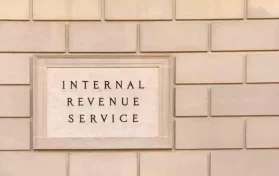
If you’ve heard individuals say that they are still waiting on their IRS refund from 2020, they aren’t being facetious – the IRS says that they are in the midst of a backlog where million of returns from 2020 are still being processed. The Internal Revenue Service calls last year “one of its most challenging years” for the agency.
According to National Taxpayer Advocate Erin Collins, who released a report recently, taxpayers could face even longer delays during the 2021 tax filing season as the IRS is planning to attack the backlog first.
According to Collins, “There is no way to sugarcoat the year 2021 in tax administration. From the perspective of tens of millions of taxpayers, it was horrendous.” Collins added that the delays could be as bad but potentially worse than last year’s delays.
The 2021 tax season kicks off on January 24, 2022. However, there is a massive pileup of returns from last year that remain unprocessed. The National Taxpayer Advocate watchdog group estimates that there were more than 8.6 million unprocessed individual income tax returns as of mid-December with 2.8 million business returns in addition to individual returns to process. The agency also had approximately five million pieces of mail that remain unanswered.
In years before the pandemic, the IRS typically only experienced a backlog of maybe one million unprocessed returns.
While the pandemic has had quite the effect on the delays, the IRS’ scrambling to produce stimulus payments also added to the delay issue. In addition, the pandemic closed many offices across the United States, and there have been major changes to the tax code in the middle of the year that the IRS has been forced to adapt to. Making matters worse is that the IRS is grossly understaffed, having 20,000 fewer employees than it did in 2010.
Add to all these issues the idea that the IRS has seen more than twenty percent of its customer service personnel unable to work due to the pandemic in the last two years, and it is understandable why there are massive delanys.
Collins says that the new year could bring even more challenges to the agency. Taxpayers who received the child tax credit will have to factor that into their returns for 2021. This could lead to even more errors and processing delays on top of the delays already dragging processing down.
So, how can taxpayers hopefully avoid being one of the many Americans experiencing a delay? They are advised to file electronically if possible, and to file early.
This year, taxpayers do not need previous returns in order to process their 2021 return. Taxpayers should also use direct deposit options if they expect a refund; the goal of the IRS is to process the return and get refunds out within twenty-one days as they have in the past.





